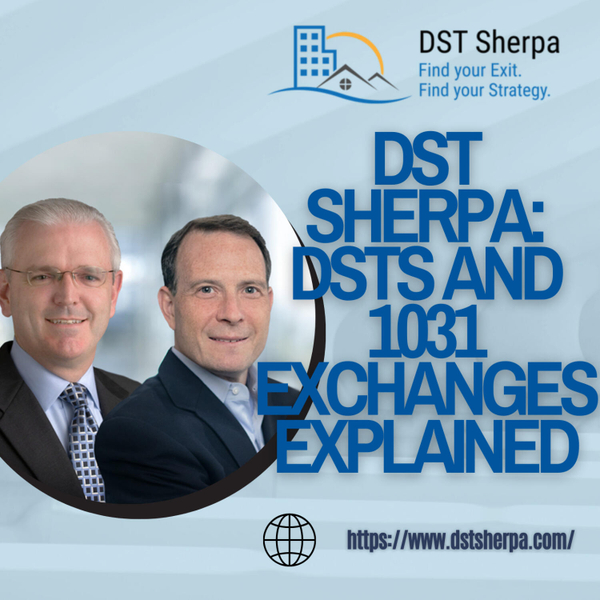
DST Sherpa: DSTs and 1031 Exchanges Explained: Ross Rubin & Peter May on Real Estate Tax Strategies, Exit Plans & Passive Income Tools
- S7E21
- 1:13:53
- August 28th 2025
In the new episode of The Attorney Post, Ross Rubin and Peter May explore the growing role of Delaware Statutory Trusts (DSTs) and 1031 exchanges in modern wealth management. With Rubin’s background in DST sponsorship and May’s roots in law and financial planning, the episode offers a comprehensive look at how investors can leverage real estate for long-term financial gain.
DSTs, which allow accredited investors to defer capital gains taxes by investing proceeds from property sales into fractional ownership of institutional-quality real estate, are projected to surpass $7 billion in transaction volume. However, Rubin cautions that investors must relinquish direct control and trust the DST sponsor for effective asset management.
May introduces a four-quadrant planning model—focusing on taxes, cash flow, investment position, and estate preservation—as a foundational strategy for clients. He also shares real-life examples of clients who benefited from using passive activity carryforwards to reduce tax burdens on appreciated properties.
A recurring theme is the 45-day identification window for 1031 exchanges. Investors facing tight timelines often find DSTs helpful due to their pre-approved structure. Still, May notes that environmental concerns, like those in Florida, and high state taxes, such as in California, influence client decisions on DST location.
The episode also compares DSTs to REITs. DSTs offer targeted exposure—typically in multifamily, industrial, or medical office assets—but are illiquid and usually held for 4–7 years. Some may be converted into 721 UPREITs, permanently changing their tax deferral eligibility.
May and Rubin warn against common DST misconceptions, such as the belief that proceeds must be invested into one DST. Instead, investors can allocate funds across multiple trusts for better diversification. The minimum investment, typically $100,000, makes this flexibility achievable for many sellers.
Both guests stress due diligence and understanding sponsor health, especially since DSTs cannot raise capital post-offering. Their conversation serves as a timely reminder that proper guidance, compliance, and planning are essential when considering DSTs.
For anyone looking to optimize real estate investments and defer capital gains taxes, this episode delivers a wealth of knowledge from two trusted voices in the field. Visit https://www.dstsherpa.com/ to learn more about how Rubin and May are helping investors make smarter, tax-efficient decisions.
Sponsors:
The Attorney Post
Welcome to the attorney post, your source for the inside scoop on current legal news. On this podcast we will interview leaders in various facets of the legal field, help you to understand the various ins and outs of what they do, and cover the basis of some of the most burning questions people have when looking into these facets of law.
SPONSORS: Injury Attorney Leads and ROCKETSEO
Meet the Host
Justin West is a digital marketer and the chief cook and bottle washer at Hundreds of Customers LLC, and the host of The Attorney Post.
Justin holds a BA in Philosophy and a BA in History. He dabbled in going to law school (but really just "liked taking the pLSAT tests) and got into marketing as he was pursuing his Ph. D. in Philosophy. Married with 5 kids, he jumped into entrepreneurship and never looked back.
He loves meeting new people and learning from the life experience of each attorney he get's the opportunity to speak with.